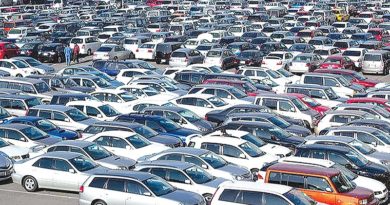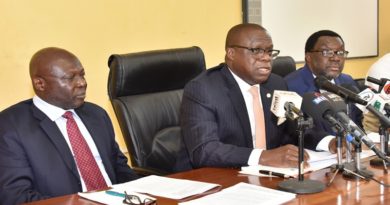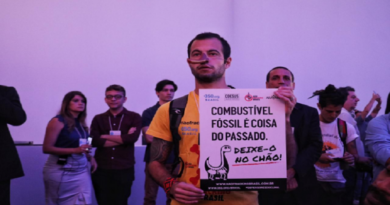AfDB, GEF support water supply in Malawi, Lesotho with $6.6m
The Global Environment Facility (GEF) Council on February 13, 2017 approved a total of US $ 4 million and US $ 2.6 million, respectively, for Lesotho and Malawi as part of additional financing projects with the African Development Bank (AfDB). The funds are mobilized under the Least Developed Countries Fund (LDCF) of the GEF.
The two water supply and sanitation projects which will be implemented in Malawi and Lesotho, will contribute towards addressing constraints in the African Water and Sanitation Sector, more specifically constraints related to exploding peri-urban areas; economic growth and higher demand; geographical isolation; dearth of public utilities and regulation and high costs of water provision and the water stress caused by increasing climate change and variability. Improved Water and Sanitation Supply is therefore identified as a priority intervention area in the National Adaptation Plans for Action of the two countries.
The first project is the Climate Adaptation for Sustainable Water Supply in Malawi which will be financed by GEF for an indicative amount of US $2,643,500 co-financed by the AfDB to the tune of US $39,500,000. The project is aimed at enhancing the sustainability of the water supply in the river courses and climate proofing the water resources outputs of the baseline investment in five districts, namely Rumphi, Nkhotakota, Ntcheu, Mangochi and Phalombe.
Malawi receives an average of 850 millimetres of rainfall per year. However, the distribution and consistency of the rainfall is very erratic and uneven, so that the whole of Malawi is prone to hydrological droughts. Malawi’s strategic water resources are vulnerable to the effects of climate change because of the high frequency of extreme weather events, droughts, floods, in addition to pollution pressures from untreated wastewater and other sources. Droughts in Malawi result in reduced river flow rates, and the complete drying up of rivers. The water table also recedes, thereby affecting boreholes and wells which are major sources of potable water in rural areas. This project thus supports the implementation of alternative options for ensuring adequate water supply and sanitation services for rural communities.
The second project is the Climate Change Adaptation for Sustainable Rural Water Supply in Lowlands, Lesotho, which will be financed by GEF for an indicative amount of US $4.4 million and co-financed by the AfDB to the tune of US $17 million. The project will improve livelihoods of the communities of the southwestern lowlands facing challenges related to climate change with a particular emphasis on better resources management. The project will benefit 65,000 inhabitants of the area, who are currently served with inadequate levels of safe water supply and sanitation.
Water and sanitation problems in the lowlands of Lesotho have been exacerbated by extreme and frequent drought occurrence. The overall diminishing amount of rainfall is a source of grave concern for the sustainability of sources of domestic water. This has had dire consequences for the livelihood and well-being of the people in the region particularly the vulnerable rural communities. The burgeoning rural communities also place mounting pressure on the already precarious water resources. This project thus supports additional measures to increase the resilience of drinking water availability in vulnerable areas through supply-augmenting and demand-control measures, combined with the protection of micro-watersheds and water supply sources from climate-induced droughts and floods.
“Through this funding from the GEF/LDCF, the AfDB will support communities in Malawi and Lesotho to improve their resilience to climate change and ability to respond to drought and floods conditions while supporting the construction of more resilient infrastructure and more sustainable natural resource management practices” stated Anthony Nyong, AfDB Director for Climate Change and Green Growth. “The AfDB is committed to triple its annual climate finance to reach US $5 billion annually by 2020, thereby scaling up adaptation finance in Africa.”
With the additional financing from LDCF, the impact of the two projects will be enhanced, particularly with respect to resilience, sustainability of water facilities and natural resource management in the face of climatic shocks. These additional resources will further contribute to improving the peoples’ living conditions.
The additional LDCF financing will also complement the Bank’s efforts, by particularly supporting the transition toward green growth that will protect livelihoods, improve water, energy and food security, promote the sustainable use of natural resources and spur innovation, job creation and economic development, as spelt out in the Bank’s Strategy for 2013–2022.




